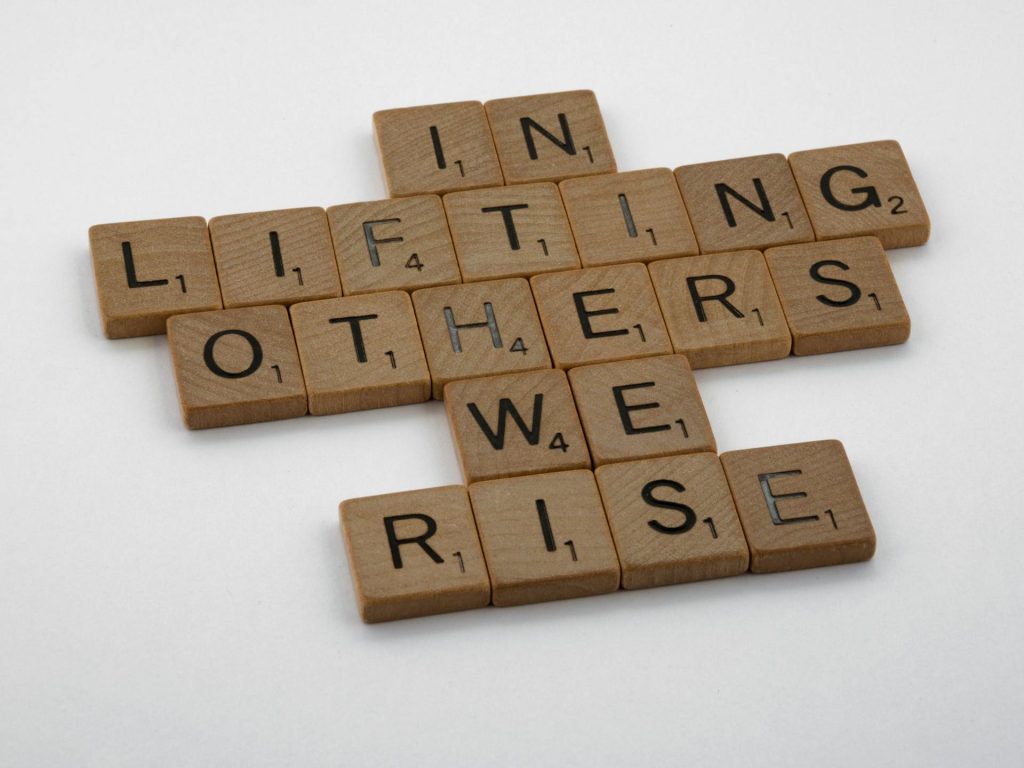According to the Cambridge Dictionary, empathy is defined as the ability to share someone else’s feelings or experiences by imagining what it would be like to be in that person’s situation. In today’s fast-paced world, how would you assess our society’s capacity for empathy? We are inundated with information and choices, leading to a state of over-informity, overstimulation, and stress, distancing us from our inner compass. This sensory overload often leaves us hurried, confused, and disconnected from our true needs and desires.
As we navigate the chaos, many of us unconsciously seek refuge in detachment and apathy. While it may feel liberating to escape the pressures of modern life, this disconnection can have profound implications for our well-being and the collective health of our society. When faced with the tension between overstimulation and carelessness, we must strive for clarity within ourselves to determine what truly serves us.
So, how can we lead a healthy, balanced, and compassionate life? Is developing empathy the key to restoring equilibrium? Could those with natural empathic qualities be uniquely positioned to foster positive change for humanity and our planet? Is empathy the only leadership style that genuinely promotes the highest good for all?
To delve deeper, let’s clarify what empathy entails. Psychologist Paul Ekman identifies three main types of empathy: cognitive, emotional, and compassionate. Cognitive empathy involves understanding another person’s thoughts and feelings, which can be invaluable in management and negotiations. However, mere understanding often falls short, as excessive information can hinder effective action.
Emotional empathy allows us to internalize and physically feel what others are experiencing. This form of empathy serves us well in personal relationships and service professions but can lead to emotional burnout if self-care is neglected. Ekman argues that compassionate empathy is the most transformative. It arises from the awareness that we are all interconnected, recognizing that what affects one affects us all. This realization can be frustrating, yet it can also catalyze powerful, compassionate action.

Beyond these three types, some individuals possess an innate ability to deeply feel and care for others—traits characteristic of empaths. In a world increasingly marked by disconnection and apathy, their heightened sensitivity is crucial for illuminating the darkness that envelops our society. The widespread absence of spiritual intelligence has further weakened our connection to our purpose and to one another. Many people, focused on material comfort and status, fail to explore their true reasons for existence and contributions to the world.
The prevalent «what’s in it for me?» mentality fosters competition and inequality rather than cooperation and balance. It’s essential that we reflect on our feelings and the actions we wish to take to promote a compassionate way of living together.
This article is dedicated to highly sensitive individuals who may not yet see themselves as leaders due to a genuine reluctance to compete or create conflict. Empaths naturally desire the highest good for all, as this aligns with their own well-being. However, even though many shy away from voicing their perspectives, fearing others may not understand, the truth is they do have strong views about how to improve situations that affect us. This tendency to please others can perpetuate harm and chaos if left unchecked. High sensitivity and strength can definitely go hand in hand. They can create a balanced leadership approach that serves the highest good of all the people involved
Conflict and discomfort are inevitable aspects of life as we grow and evolve. Instead of avoiding these challenges, we as empaths must embrace our sensitivity as a strength. It’s time for highly sensitive individuals to step into their leadership roles, sharing their insights and advocating for compassion and care at the forefront of our lives. The world needs our perspective.

Leaders like Nelson Mandela and former New Zealand Prime Minister Jacinda Ardern exemplify empathetic leadership. Mandela’s commitment to compromise and empathy transformed South Africa during a pivotal political transition, while Ardern’s authentic approach garnered international respect and facilitated bold decisions. These examples illustrate the profound impact of compassionate leadership.
I advocate for a style of leadership that prioritizes self-care, trust, and wholehearted decisions that will bring prosperity in our personal as well as professional lives. We must cultivate the skills and emotional intelligence necessary to navigate our complexities. The world needs leaders who genuinely empathize with the challenges faced by others and our planet, enabling us to evolve into a more aware and cohesive global society where we can all feel respected and heard.
Here are six reasons why empath women need to see themselves as leaders who have the potential to create positive change for all of us.
1. Innate Desire for the Highest Good
Empathic women possess a genuine desire for the highest good for all, which naturally aligns with their own well-being. This intrinsic motivation positions them to create compassionate environments where everyone can thrive.
2. Valuable Insights
Although empathic individuals often shy away from voicing their perspectives out of fear that others may not agree or understand, they hold strong views about how to improve situations. Their insights are invaluable gifts and can drive transformative change when shared. The more empathetic leaders share their voices the easier it will be for the world to see how a better world is possible.
3. Strength in Sensitivity
High sensitivity and strength can coexist beautifully. Empathic women can leverage their sensitive nature to create a balanced leadership approach, integrating emotional intelligence into their decision-making processes. This can lead to more inclusive and effective leadership that will inspire others to share their best efforts for the common good.
4. Embracing Challenges
Conflict and discomfort are inevitable aspects of life as we grow and evolve. Instead of avoiding these challenges, empathic women can embrace their sensitivity as a strength. This ability to navigate discomfort can foster deeper understanding and connection within teams and communities.
5. Role Models
Empathetic leaders foster an environment of trust and openness. When team members feel understood and valued, they are more likely to share their thoughts and concerns which will enhance greater collaboration, diversity, inclusion and true innovation. A culture of empathy fosters new ways to look at things because people feel safe to speak up. Empathetic leaders foster true innovation and growth.
6. Need for Emotional Intelligence
As we face increasing challenges and complex situations which can’t be solved in narrow-minded ways, the world needs leaders who genuinely empathize with the difficulties others encounter. Empathic women can step into this role, bringing emotional intelligence to the forefront and helping to heal the divisions that often exist in society.
Ultimately, I believe that wholehearted leadership is the highest form of self-love we can embody and model for our children. Self-leadership and self-care are the foundational steps toward becoming healthy individuals and contributing positively to the world at large. True leadership is about understanding what is at stake and creating an inclusive response that paves a better path for all the people involved.
We are all interconnected, and bold empathetic leadership involves owning your life story and deciding how to write the next chapters. It’s about learning from the past, letting go of what no longer serves us, and embracing a mindset rooted in abundance, worthiness, and love. When we prioritize self-love, the world we create reflects that compassion back to us.
Julia Santafé, MA
Leadership Coach
sensitivity-know-how.com




